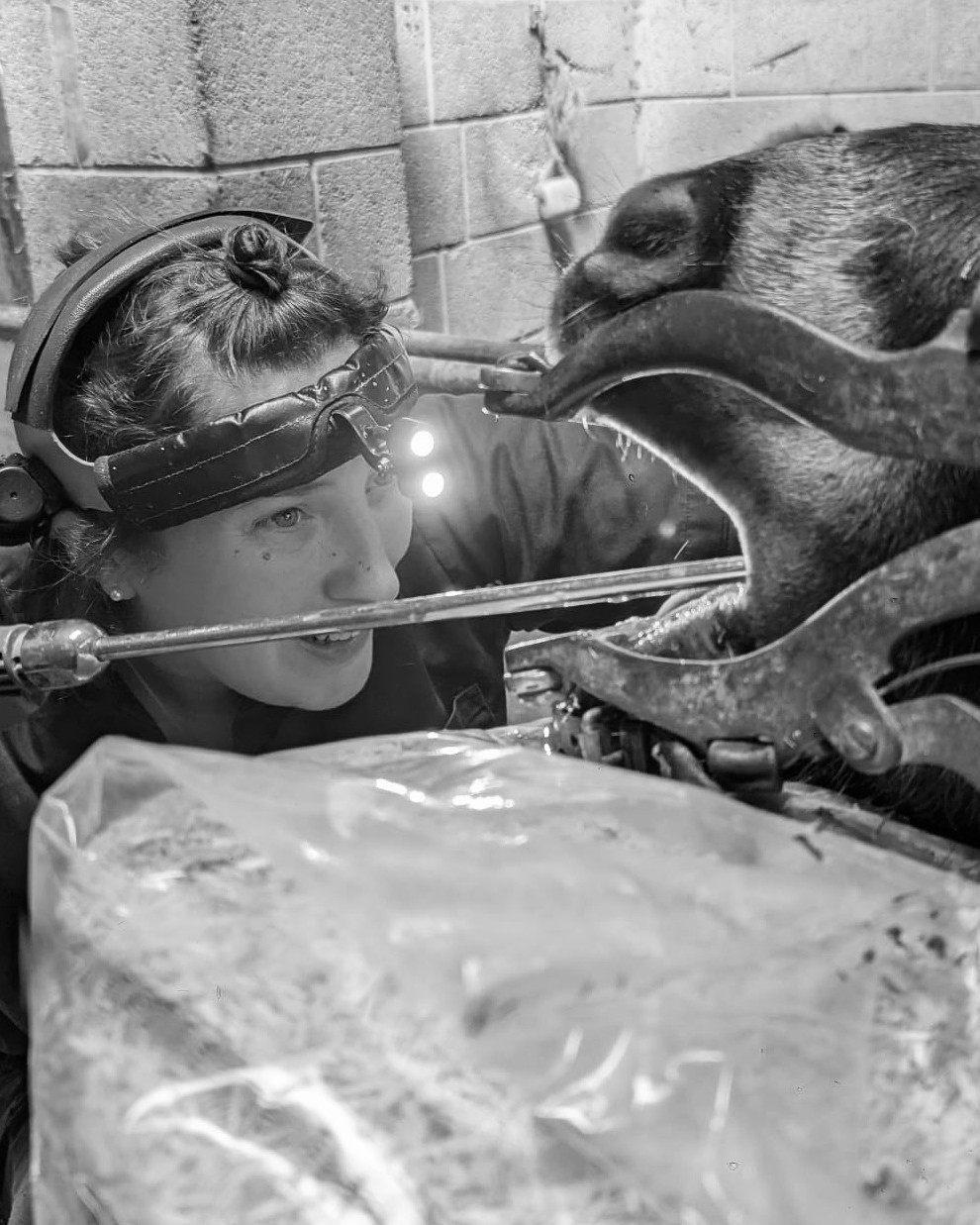Dental problems in horses, ponies and donkeys can lead to a range of issues, from difficulty eating to ridden problems. However, as is demonstrated by this particular case study, equines are often very good at hiding pain and discomfort, and this is why regular dental check ups are essential to their health and welfare.
Our patient Basil’s case demonstrates the importance of routine dental checks for your horse, pony, or donkey, and highlights just how well some equines can hide pain and discomfort.
Basil’s Fractured Tooth
Basil is a senior Miniature Shetland pony. At over 20 years old, he continues to have routine dental examinations to identify any issues before they develop. During one routine dental examination back in 2023, Basil was found to have a fractured tooth.
As Basil’s examination was being carried out by one of our highly qualified equine dental vets, we could fully assess the problem with Basil under sedation. From there, we could plan his treatment immediately. This is one of the main benefits of having your horse’s routine dental examinations carried out by a vet - unlike an equine dental technician (EDT), we can administer sedation, dispense prescription-only drugs (such as Bute), and carry out “category three” procedures such as extractions.
Basil’s tooth had been diseased from some time, and this had caused caries lesions (holes) in the infundibulae and a structural weakness right down the centre of the tooth. This meant an extraction was required.
After carrying out a series of nerve blocks, our equine dental vet Laura set about removing the tooth, piece by piece. Then, the now empty tooth socket was packed with a sterile swab.
Once Basil had recovered from his sedation, he returned to life as normal, being fed from the floor to assist with any drainage. He was checked one and two weeks post extraction to ensure the socket was healing nicely.
Basil’s dedicated owners were delighted at the improvement in his body condition and demeanor, suggesting that perhaps the tooth had been causing more issues than they realised.
It is often only once a dental issue is resolved that we can fully appreciate the lengths equines can go to in hiding discomfort. Subtle signs, such as small changes in body condition and demeanor, can go unnoticed or be dismissed as age-related, seasonal, or a symptom of something minor and temporary that will go away on its own. However, they can often be symptoms of a dental problem, which is why it’s important to have your horse’s teeth examined regularly and contact your vet if you notice any changes.
Basil is Back For Round Two
Fast forward to January 2025, and another one of Basil’s cheek teeth was found to be fractured during a routine dental examination.
Despite Basil showing no obvious signs of discomfort, his owner quickly got him booked in with our equine dental vet, Laura, to have the fractured tooth removed. This had to be done in two sessions, as Basil’s tooth was not straightforward to remove. Finally, after the second appointment, the last bit of root was removed and Basil quickly got back on with being his cheeky self.
Interestingly, once the tooth had been removed, Basil’s owner again noticed that his coat was glossier and his demeanour better. Once again, Basil had done a good job of concealing his dental issues as is often the case.
Equine Dentistry With Avonvale Equine Vet Practice
There are ways to reduce the risk of infundibular caries, but we believe that genetics may also play a part, so there are some horses that are simply predisposed. Regular dental examinations are very important in detecting the early signs of dental issues and having them treated before they become an issue. Like Basil, lots of horses, ponies and donkeys can be very good at hiding them.
To register your horse, pony or donkey with our practice, simply complete our online registration form. We offer routine and emergency equine dental examinations and treatment, alongside our other ambulatory equine veterinary services.









